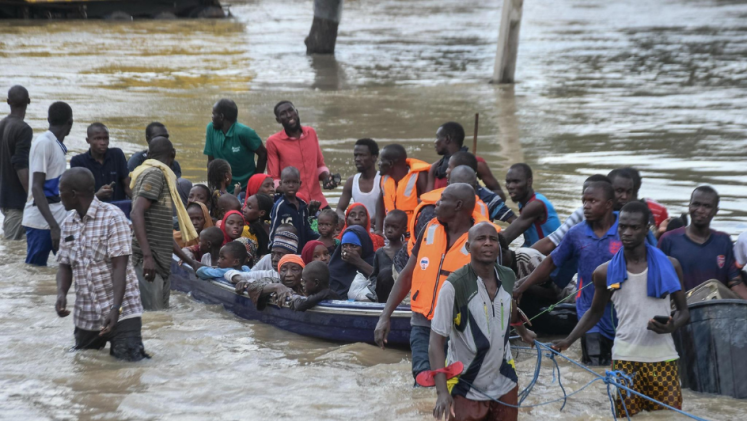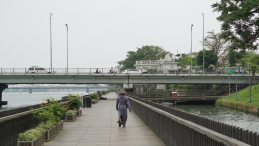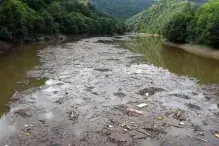Driven by torrential rains and made worse by infrastructure failures, floods in Central and West Africa have been exceptionally bad this year. In Nigeria last week, the Alau dam near the city of Maiduguri in Borno state collapsed, releasing a tidal wave of water on the city and surrounding areas. Excess rainwater was the cause of the breach that has killed more than 265 people. In Chad, another 487 people have also lost their life due to flooding and heavy rain over the last months.
Though climate change is playing a significant part in the increased frequency and intensity of extreme weather in the two regions, the flooding is not new, and vulnerability is growing. UNU-EHS Visiting Scientist Dr. Olasunkanmi Okunola was featured in two articles by the New York Times covering the floods in Africa and the growing corresponding humanitarian challenges.
“The impact of climate change is what we’re seeing right now,” Dr. Okunola said in the article on the floods in Africa. “There is no way we can prevent major disasters from happening, but there are steps we can take to lessen the effect.”
He offered that improvements to critical infrastructure and early-warning systems are important in reducing the severity of the impacts from the floods there.
At the same time, major floods are also occurring in Asia, Europe and North America. In a second article with The New York Times about the global situation, Dr. Okunola echoed the same message on adaptation and flood-resilient infrastructure, especially for low-income countries. “We need to develop infrastructure,” he was quoted. “If you get that right, to some extent, you can lessen the impact of climate change.”
Additionally, Dr. Okunola was interviewed by The World, a podcast from Public Radio Exchange (PRX) in the United States, on the current situation in Nigeria.
To read both The New York Times articles click here and here. To listen to the podcast interview, click here.





